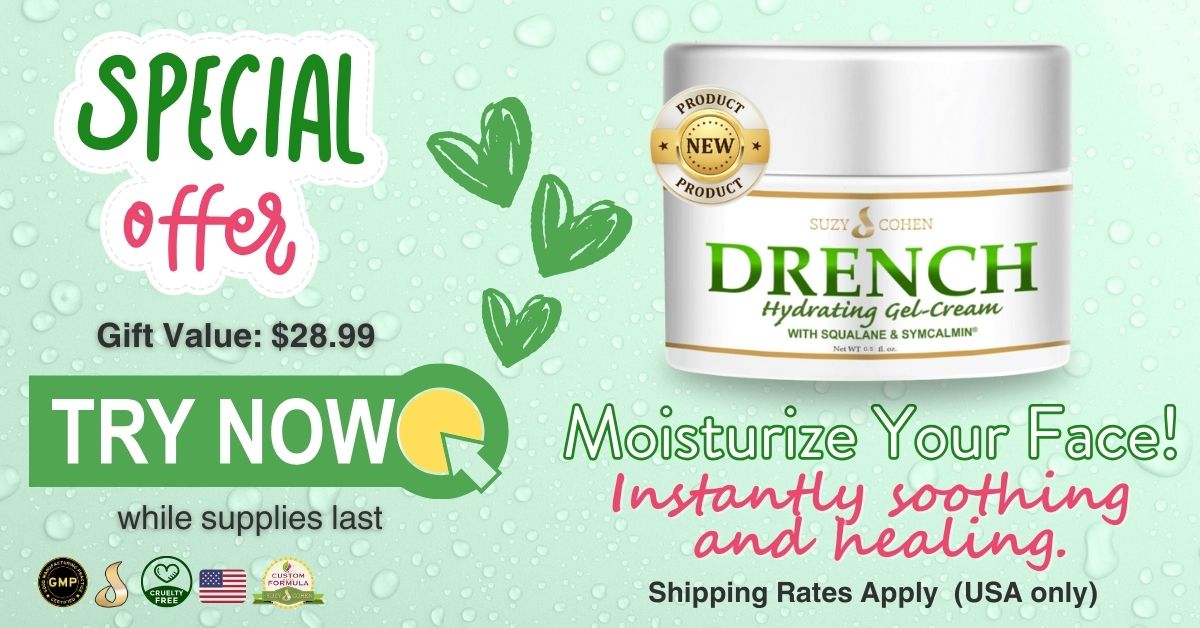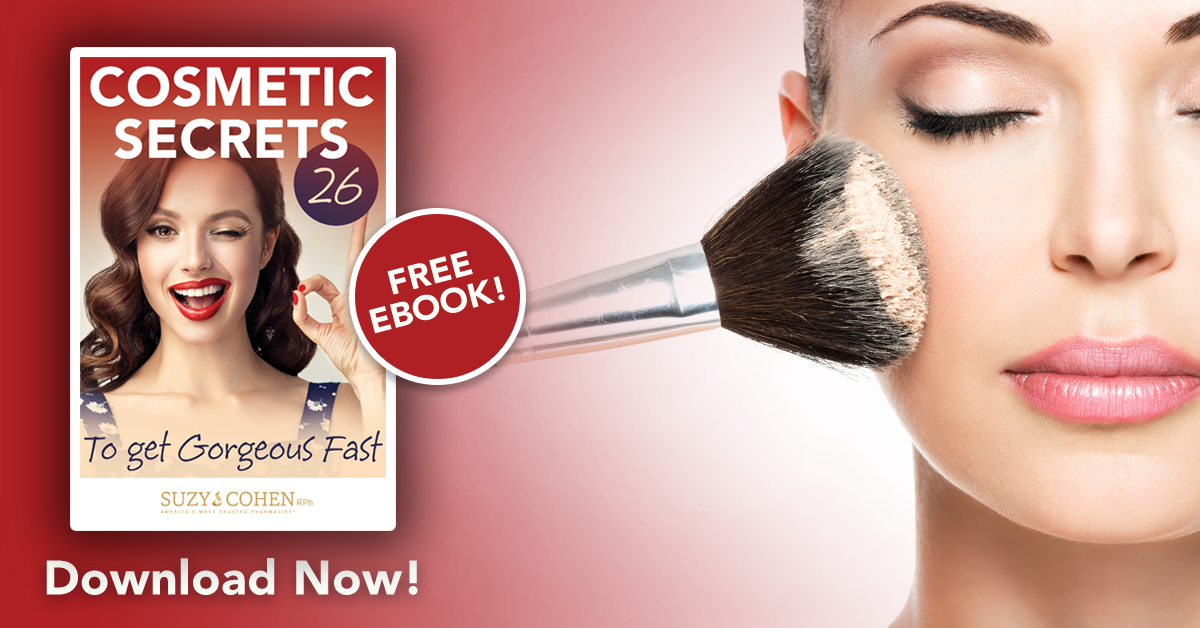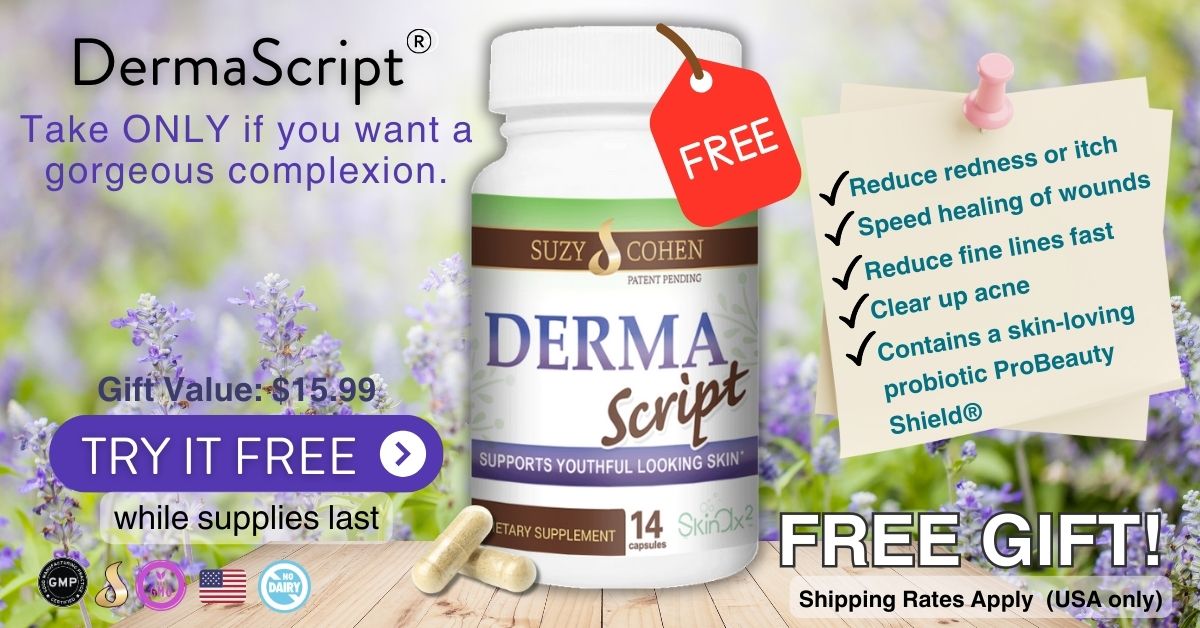What's On This Page?
ToggleI’m going to make you fall in love with body butters before I’m through with this! They are completely natural and insanely easy to make. You can add essential oils to make it smell nice and then apply as liberally as you like without fear that your moisturizer will provoke cancer, endocrine disruption to your hormones or irritation rashes.
Let’s face it, keeping your skin glowing and supple is no easy task, which is why most people turn to lotions to hydrate the skin. It’s instantly soothing. It’s not just women who seek soft supple skin either, many men use shaving creams that dry their faces, or have dry elbows and heels. So again, we all universally share the problem of dry skin at times, especially in the winter.
Drinking plenty of water is usually not enough to hydrate yourself. You can also CLICK HERE to get a ‘DIY recipe’ so you can make your own Pumpkin Spice Body Butter. If you prefer a floral or fresh scent, CLICK HERE to learn how to make Whipped Jasmine Lemongrass Body Butter.
Why is body butter so superior to conventional products? Let’s look closer at some of the harsh compounds that might be in your lotion.

What’s REALLY in Your Body Creams / Lotion?
Don’t let the beautiful bottles trick you; there’s a lot of different substances found in beauty products, and many of them are questionable.
Paraffin.
This petroleum-derived compound will coat your skin in a thin plastic covering, which clogs your pores and potentially allows toxins to build up on your skin. On the upside, when warmed, this wax can bring tremendous relief to stiff and painful joints in the fingers and feet.
Think of a paraffin wax treatment at the salon or the chiropractor’s office. It’s a type of thermotherapy. But if it’s in your skin cream, it’s probably not ideal long-term since it can clog your pores. CLICK HERE to get my DIY recipe for a lotion free of toxins. I’ve named it Silky Juniper Rose Lotion, but you can rename it based upon the essential oils/fragrances that you use.
Parabens.
This common cosmetic preservative can be found in over 10,000 beauty products, it is almost impossible to completely avoid, however you can limit your exposure. It is used to protect against microorganisms that could grow inside your skin care product, then after you apply it, you could get infected.
It is a preservative, but it has questionable actions on your endocrine system and has been shown to disrupt hormonal status. Some people even think it damages DNA and harms cells as well as their ability to proliferate properly.
A cell-study found that paragons could increase expression of HER2 which is found in 25% of breast cancer tissue; this was not a human study, but again, it’s probably better for you to limit your exposure and choose skin care lines that are paraben-free.
You can read more about Parabens and How to Avoid Them, then take 10 minutes to learn by CLICKING HERE.
Propylene Glycol.
This common moisturizing agent is also the main ingredient of antifreeze. It is present in minute amounts to keep the formula stable in the presence of high heat or freezing cold. But the compound itself actually irritates the skin of sensitive people and is thought by some researchers to inhibit normal cell growth. There is also evidence that it can lead to convulsions, liver and kidney problems in excessive amounts but I don’t want to scare you, I doubt it’s of any serious concern if we’re talking about your eye shadow or blush.
But the FDA disagrees and has given it GRAS status which means it has been classified as “generally recognized as safe” for use in small amounts. So the amount of exposure is the key they think. It’s found in skin care products galore, as well as food. It is like a sponge, so the additive is there to absorb extra moisture and maintain the integrity of skin care products, as well as medications and food products; it’s also in some brands of antifreeze, bath soap, shaving cream, baby wipes and medications of all kinds.
Perfume
I’m guilty of this myself, but in my younger years I’ve selected a skin cream based solely upon the perfume or fragrance. But I avoid those now at all costs. You see, one single fragrance in a product could have upwards of a hundred different synthetic chemicals in it. And there are often more than one fragrance added to a product, so if you apply a skin cream to yourself (or perfume spray), you are applying hundreds, perhaps a thousand different chemical moieties to your skin.
That’s a frightening prospect for people once they learn the truth behind these chemicals. Styrene oxide causes depression and acetonitrile can cause headaches not to mention that over the course of just 12 hours it is metabolized to hydrogen cyanide, which produces most the side effects. So right after the spritz you might be fine, but that night or the next day you feel bad.
Please note that I’m not referring to essential oils, or natural fragrances.
I’m not referring to floral waters either, those are all a type of natural and safe fragrance.
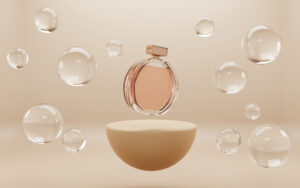
I’m referring to what probably 95% of lotions contain… completely space-alien man-made substances that have chemical names which are impossible to pronounce, These are almost always used to create a scent that mimics a natural flower. It’s a multi-billion dollar industry because these chemicals are included in everyday household items and personal care products. You find the chemicals in our dryer sheets, perfume, shampoo, lotion, bathroom spray, household cleansers and cosmetics.
These chemicals BIND to your cells receptors (like drugs do) and ultimately produce an action downstream in your body (similar to a neurotransmitter). The difficulty is that they do not unstick very easily. It takes hours, sometimes days and sometimes not EVER to unstick a chemical from your body. That’s why you can test your urine and still find metabolites from chemicals you sprayed upon yourself years ago.
So this is one amazing perk to using natural skin care lotions and body butters. When you apply a natural cream or body butter, not only do you lower your personal risk for thyroid disease, reproductive cancers (estrogen driven) and pain syndromes, you also reduce the risk of these same problems in the people around you who breathe in the chemicals that you’ve sprayed or applied to your self.
Do everyone a health favor. If it’s scented, don’t use it anymore.
Many fragrances are potent neurotoxins.
Exposure to scented skin care products and fragrances, or clothing dried in perfumed dryer sheets will enter the human body via inhalation and transdermal absorption. They bind to your cells as endocrine disruptors, skewing all your hormones out of balance and usually leading to headaches, depression, weight gain and abnormal cell proliferation. Some women commonly see a worsening of PCOS and/or PMS. These are chemicals that remain inside your bloodstream and cells long after you take a shower.
Sodium Laurel Sulfate
This is an interesting compound because it has many positive uses, however, it is commonly used to kill plants and and it’s an insecticide. If enough of it entered a pond or lake, it would kill some fish. Makers have petitioned their ingredient in the hopes to have it approved as a pesticide for organic farming, but that’s troublesome because it can harm aquatic life when it gets into the water.
It is pervasive, found in about 90 percent or more of personal care products, especially those that suds or foam. Overexposure has been known to breaking down your skin’s moisture barrier and allows chemical compounds to enter your bloodstream. According to some research, it can also trigger hair loss, and it acts as an endocrine disruptor impacting thyroid and estrogen levels.
What is Body Butter?
Body butters are nourishing skin products that are made from cold-pressed extracts of either beans, seeds, or nuts. These rich formulas will remain solid at room temperature, but once applied, they melt into your skin. The texture won’t be amenable to everyone, but if you have dry skin, it will be your dream come true. You see, body butters are much thicker than lotions because they do not contain water.
Many of them have the texture of … well, butter! I’ll circle back to this shortly. Most body butters, even those that are commercially made are often free harsh ‘blending’ types of chemicals or synthetic preservatives. The formulas are pretty straight-forward and simple in terms of ingredients. Most body butter is naturally odorless, though some (like shea butter) has a mildly nutty scent. This gives you the freedom to incorporate your favorite essential oils into the butter for a personalized skin treatment.
Texture-wise, body butter can range from whipped and delicate to semi-solid or rock hard. It takes more work to massage them into your body than regular lotions, but their fatty acid content makes them significantly better at softening skin and penetrating through your pores. Because of these traits, body butters are perfect for soothing angry red rashes, or dry cracked heals or lips.
Just like a serum, quality body butters can reduce inflammation, fine lines, as well as chronic dry elbows, knees and hands. Some women also find success using body butter for stretch marks.
The Best Body Butters Contain…
There is a huge range of ingredients that can be incorporated into body butter, and mixing two or three different items below will give you the best final product. Some of the most popular ingredients include those listed below:
Almond Butter- No nuts are involved, I’m referring to sweet almond oil aka Prunus Amygdalis, which can be whipped into a thick, creamy butter that’s especially helpful for treating a dry scalp. You whip it with a hand mixer/blender.
Avocado Butter- For this, you’d be whipping avocado oil, which is rich in vitamin A, E and glutathione. There’s a lot of work involved in getting this precious oil, as it has to be spun from the avocado meat itself. Avocado oil is great for cooking too, plus, some evidence suggests it can lower your skin’s risk of sunburns.
Cocoa Butter- Cocoa butter is used to make everyone’s favorite indulgence chocolate! Cocoa butter is also known as theobroma oil, and it’s just a fat that producers extract out of the cocoa bean. Sweet! This shelf-stable vegetable fat will last for years in your pantry, and its silky texture lends itself well to a wide range of beauty products. Pregnant women swear it’s a stellar treatment for preventing stretch marks but I’m not so sure it can prevent those. I think it’s just a really good moisturizer.
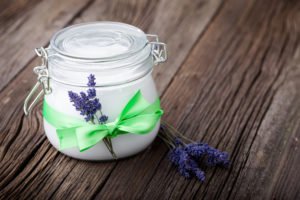
Coconut Oil- Known for its tropical scent and low melting point, coconut oil makes a beneficial all-around body butter. It smells so good you’ll want to eat it. It has antifungal properties and it’s a strong anti-inflammatory making it useful for mild skin irritations and minor wounds.
Cupuacu Butter- Made from the Brazilian cupuacu fruit, this butter tends to be a little oily, but it’s an ideal ingredient for homemade hair conditioners. Think of it as an emulsifier, nourishing your skin with potent phytosterols (plant sterols) which help support collagen production. This gives it an anti-aging effect when mixed with other lighter oils.
Grape seed Oil- This non-greasy oil contains impressive amounts of vitamins C, E, and beta-carotene, and it improves the spreadability of any body butter that it’s added to. It is a quick-absorbing carrier oil and that will make for a lighter body butter/cream. I love this as well as apricot kernel oil.
Jojoba Butter- For those who want the benefits of intensive hydration without any heaviness, jojoba oil makes a creamy body butter that is ideal for treating skin inflammations like eczema and psoriasis. This is very close to your own’s skin make-up, so it’s perfect for most people.
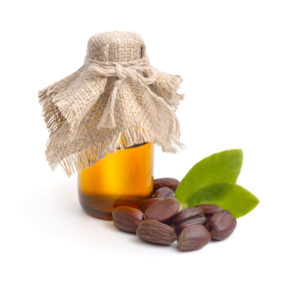
Kokum Butter- Don’t be fooled by its hard appearance, kokum butter can help you achieve soft and supple skin without leaving a greasy residue. It is one of several that are non-comedogenic. You’ll get great results using it after a sunburn.
Mango Butter- Made from the mango seed, this lightweight butter works well for those with skin that’s prone to oil production. It has many antioxidants and may help smooth out fine lines and soothe insect bites.
Olive Butter- Olive oil is filled with antioxidants that hydrate your skin, making it a favorite liquid ingredient to incorporate into homemade body butter.
Pumpkin Seed Butter: Impressive linoleic acid levels means that pumpkin seed oil creates a nourishing body butter that’s perfect for dry skin.
Shea Butter- Shea is the common name of Butyrospermum parkii oil. Thanks to its unique fatty acid composition, shea butter is a versatile ingredient in numerous cosmetic products. It may help a little with acne and it fights sun damage.
Soy Butter- Filled with omega-3 fatty acids, soy butter can improve your skin’s hydration levels and also works well in hair products. It is high in lecithin, phytosterols, Vitamin E and omega-3 fatty acids.
Sunflower Seed Oil – Use Helianthus Annus (sunflower seed oil) to make your butter by whipping it. It contains all kinds of nutrients, antioxidants and moisture-retaining compounds which work well for sensitive skin, prone to redness and irritation.
Ucuuba Butter- This South American tree’s seed produces a hard, dry body butter with anti-inflammatory and antiseptic properties. The exotic oil comes from seeds of the Ucuuba tree. It is high in essential fatty acids.
Simple Tips For Using Natural Body Products
Putting homemade body butter to use is a straightforward process. All you need to do is dab some butter on your fingers and rub it where you most need moisture. For a more nuanced take, read the suggestions below.
Body butter is intended to be concentrated, much mores than lotion. This means that a little product goes a long way! You’ll have it for a long time. Start with a tiny amount between your palms and rub them together to warm them it up before putting it where you need the moisture. This also improves the absorption.
Quality ingredients make all the difference in your body butter, so read the labels carefully to know what you’re buying. Seek out terms like “unrefined,” “crude” and “cold pressed,” as they offer evidence that the oil was extracted naturally, not through high heat techniques that strip the oil of its nutrients and enzymes. Also, some oils are chemically treated and as you’ve learned today, chemicals are sometimes potent endocrine disrupters and neurotoxins.
Shelf life for your oil will depend on the ingredients used, as butters high in unsaturated fats tend to deteriorate more rapidly because they are at higher risk of oxidation. Furthermore, if you’re not putting any preservatives in your body butters, they won’t stay fresh for years.
You can put natural preservatives in there if you’d like, such as Rosemary Antioxidant Oil. You can buy a certified organic brand of Rosemary Antioxidant extract which is different than the rosemary essential oil (which has a very strong scent that I do not recommend for a body butter). But if you get the correct product, the Rosemary Antioxidant Oil provides natural antioxidant properties that are better than mixed tocopherols (often used as an antioxidant o4 preservative. It extends the shelf life a little bit, and protects your homemade body butters from bacteria.
Either way, it’s best to store your butter in the refrigerator or an airtight container kept in a cool, dark place like a drawer or cabinet. So long as it doesn’t get contaminated, the product should last for about 12 months, or more.
Pay attention to when you apply your body butter. The bests times are directly after a shower or before bedtime. Sleeping gives the product more time to penetrate your skin. You can put a body butter onto the heels of your feet before bed and you won’t wake up to dry cracked heels. You can put them on your hands and then put fabric gloves on while you sleep too, this makes for a nice hand treatment when done weekly in the wintertime.
Once you experiment with making homemade body butter, you’ll never want to go back to conventional lotions. For one, they have strong odors from the chemical fragrances, and also they are sometimes laden with foreign chemicals. There are many commercial body butters that are incredible which you can simply buy from skin care artists. Also, you can make your own, they are very easy.
CLICK HERE to get the ‘recipe’ for Whipped Pumpkin Spice Body Butter.
CLICK HERE to learn how to make Whipped Jasmine Lemongrass Body Butter
CLICK HERE to learn how to make Silky Juniper Rose Hand Lotion.
CLICK LIKE to FOLLOW Suzy Cohen – Get Important Health Tips

Suzy Cohen, has been a licensed pharmacist for over 30 years and believes the best approach to chronic illness is a combination of natural medicine and conventional. She founded her own dietary supplement company specializing in custom-formulas, some of which have patents. With a special focus on functional medicine, thyroid health and drug nutrient depletion, Suzy is the author of several related books including Thyroid Healthy, Drug Muggers, Diabetes Without Drugs, and a nationally syndicated column.
